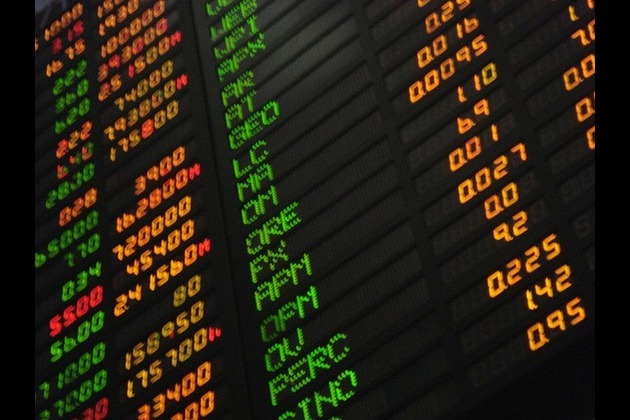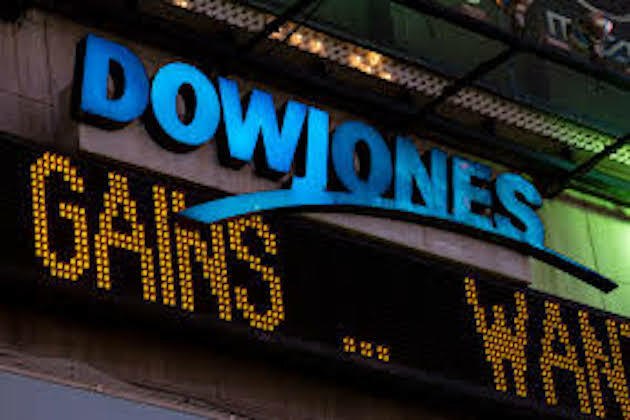OPINION: Beware of funny financials
News24
14 Oct 2019, 11:43 GMT+10

However frothy valuations currently seem to be, optimists can always argue they're justified by strong earnings. In the past four years, S&P 500 operating earnings per share have grown by nearly 40%.Those numbers, however, may be as airy as the asset prices they support.
The US government's national income and product accounts - which cover a broader number of businesses than the S&P, use tax returns and adjust for certain accounting practices - suggest that corporate profits actually peaked in 2014 and have been stagnant since. The national accounts also show significant downward revisions to corporate profit margins over the previous five years. While one would expect some discrepancies between that data and S&P numbers, which are based on Generally Accepted Accounting Principles (GAAP), the gulf is too wide to be ignored.
What's going on? In many cases, accounting choices appear to be distorting results. In early 2019, General Electric Co. reported GAAP losses of $2.43 per share; under adjusted figures it earned $0.65 per share. Tesla Inc. reported full-year GAAP losses of $5.72 per share but "non-GAAP" losses were only $1.33 per share. Over 95% of S&P 500 companies regularly use at least one non-GAAP measure, up about 50% over the last 20 years.
Conveniently excluded
One question is how companies choose to recognize income. In the case of long-term, multi-year contracts, such as construction projects, reported revenue can be based on a formula: a portion of the total contract amount, calculated as costs incurred in the relevant period as a percentage of total forecast costs. Understating estimated final costs allows margins to be increased and greater revenue to be recognised up front.
Following the collapse of Carillion, the firm was found to be aggressive in recording income which was sensitive to small changes in assumptions. Given the trend to converting sales of products (such as software) into long-term service contracts, these risks are only going to grow.
Companies can understate expenses. Many tech companies use non-GAAP accounting to strip out the cost of employee stock options, for instance, thereby showing higher earnings. WeWork sought to redefine traditional earnings before interest, tax, depreciation and amortization as something called "community-based EBITDA." The new measure conveniently excluded normal operating expenses such as marketing, general and administrative expenses, development and design costs.
Spending may be treated as an asset, to be written off in the future rather than when expended. A recent JPMorgan Chase and Co. research report found software intangible assets (the amount spent but not yet expensed) averaged up to 15% of adjusted costs for a sample of European banks. The idea is to better match expenses to the period over which they are expected to benefit the business. But the practice may overstate current earnings.
Related-party transactions can distort a company's true financial position. Saudi Arabia slashed the tax rate on large oil companies to 50% from 85%, even though the government depends on the profits of Saudi Arabian Oil Co. for 80% of its revenues. Aramco will still pay most of its profits to the state, but as dividends rather than tax. That means reported profits will be higher, potentially increasing the company's valuation ahead of a highly anticipated initial public offering.
Complex structures can mask liabilities. Tesla, for instance, faces potential payments related to its SolarCity business. Before being bought by Tesla in 2016, SolarCity regularly sold future cash flows to outside investors in exchange for upfront cash. Tesla assumed these obligations and has continued the practice. The obligations now reportedly total over $1.3 billion.
Longer wait, bigger bill
To reduce unfunded pension liabilities, some companies have borrowed at low available interest rates to inject money into the funds. That's fine as long as fund returns - generally assumed to be around 6% to 8% - are higher than the cost of borrowing. If returns come in lower, however, the companies in question will have to raise their contributions, affecting future earnings.
New business models often disregard potential costs. If Lyft Inc. and Uber Technologies Inc. drivers are reclassified as employees as proposed in California, then hidden employment costs would need to be recognized, perhaps retrospectively. Newly listed fitness company Peloton Interactive Inc. faces a $300 million lawsuit from music publishers who claim the company used their songs in workouts without paying licensing fees.
Finally, stated asset values can be misleading. Goodwill, the difference between acquisition price and the fair value of actual assets acquired, now averages above 50% of acquisition price. Goodwill values are notoriously uncertain. In 2018, GE unexpectedly wrote off $23.2 billion of goodwill arising from its acquisition of Alstom SA.
The problem is compounded by private markets, where funding rounds can establish questionable valuations. Recent investments into WeWork valued the company at over $40 billion, more than three times the projected pricing of its abandoned IPO. A recent proposal to get Saudi businesses to make anchor investments in Aramco ahead of its IPO could also inflate its valuation.
"Fake" financials, as some would call them, undermine markets. With a correction looking increasingly likely, investors need to start working with regulators and standard setters now to close accounting loopholes, while scrutinizing underlying data more closely. Otherwise, the more creatively companies are allowed to manage their financial position for short-term gain, the bigger the bill is going to be.
 Share
Share
 Tweet
Tweet
 Share
Share
 Flip
Flip
 Email
Email
Watch latest videos
Subscribe and Follow
Get a daily dose of Europe Sun news through our daily email, its complimentary and keeps you fully up to date with world and business news as well.
News RELEASES
Publish news of your business, community or sports group, personnel appointments, major event and more by submitting a news release to Europe Sun.
More InformationInternational
SectionTurkey, France battle wildfires amid early Europe heatwave
ISTANBUL/PARIS/BRUSSELS: As searing temperatures blanket much of Europe, wildfires are erupting and evacuation orders are being issued...
Venetians protest Bezos wedding with march through the town
VENICE, Italy: Over the weekend, hundreds of protesters marched through the narrow streets of Venice to voice their opposition to billionaire...
New French law targets smoking near schools, public spaces
PARIS, France: France is taking stronger steps to reduce smoking. A new health rule announced on Saturday will soon ban smoking in...
Trump hints at DOGE investigation of Musk subsidies
WASHINGTON, DC - U.S. President Donald Trump on Tuesday claimed Elon Musk's success has been built on government subsidies. Without...
Native leaders, activists oppose detention site on Florida wetlands
EVERGLADES, Florida: Over the weekend, a diverse coalition of environmental activists, Native American leaders, and residents gathered...
Beijing crowds cheer AI-powered robots over real soccer players
BEIJING, China: China's national soccer team may struggle to stir excitement, but its humanoid robots are drawing cheers — and not...
Business
SectionWall Street diverges, but techs advance Wednesday
NEW YORK, New York - U.S. stocks diverged on Wednesday for the second day in a row. The Standard and Poor's 500 hit a new all-time...
Greenback slides amid tax bill fears, trade deal uncertainty
NEW YORK CITY, New York: The U.S. dollar continues to lose ground, weighed down by growing concerns over Washington's fiscal outlook...
Taliban seeks tourism revival despite safety, rights concerns
KABUL, Afghanistan: Afghanistan, long associated with war and instability, is quietly trying to rebrand itself as a destination for...
Nvidia execs sell $1 billion in stock as AI boom drives record prices
SANTA CLARA, California: Executives at Nvidia have quietly been cashing in on the AI frenzy. According to a report by the Financial...
Tech stocks slide, industrials surge on Wall Street
NEW YORK, New York - Global stock indices closed with divergent performances on Tuesday, as investors weighed corporate earnings, central...
Canada-US trade talks resume after Carney rescinds tech tax
TORONTO, Canada: Canadian Prime Minister Mark Carney announced late on June 29 that trade negotiations with the U.S. have recommenced...













